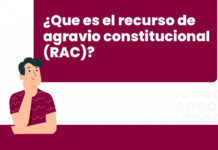Fundamentos destacados: 34. La Corte observa que el artículo 11, párrafo 2, autoriza a los Estados a imponer “restricciones legales” al ejercicio del derecho a la libertad de reunión pacífica. Considera que las restricciones a la libertad de reunión en lugares públicos pueden servir para proteger los derechos de los demás a fin de evitar disturbios y perturbaciones del tráfico vial.
35. El Tribunal reitera que un requisito de notificación previa normalmente no vulneraría la esencia de dicho derecho. No es contrario al espíritu del Artículo 11 que, por razones de orden público y seguridad nacional, a priori , una Alta Parte Contratante exija que la celebración de reuniones esté sujeta a autorización (véase Nurettin Aldemir y otros c. Turquía , núms. 32124/02 , 32126/02 , 32129/02 , 32132/02 , 32133/02 , 32137/02 y 32138/02 (acumulados), § 42, 18 de diciembre de 2007).
36. Sin embargo, en circunstancias especiales en las que podría justificarse una respuesta inmediata, por ejemplo, en relación con un evento político, en forma de una manifestación espontánea, dispersar la manifestación subsiguiente únicamente por la ausencia del aviso previo requerido, sin ninguna conducta ilegal por parte de los participantes, puede constituir una restricción desproporcionada de la libertad de reunión pacífica (véase Bukta y otros , citado anteriormente, §§ 35 y 36). Es importante que las autoridades públicas muestren cierto grado de tolerancia hacia las reuniones pacíficas si se pretende que la libertad de reunión garantizada por el artículo 11 del Convenio no quede privada de toda esencia (véase Nurettin Aldemir y otros , citado anteriormente, § 46).
37. Sin embargo, en opinión del Tribunal, el principio establecido en el caso Bukta y otros no puede extenderse hasta el punto de que la ausencia de notificación previa nunca pueda constituir una base legítima para la dispersión de multitudes. La notificación previa no solo tiene como objetivo conciliar, por una parte, el derecho de reunión y, por otra, los derechos e intereses legítimos (incluido el derecho de circulación) de terceros, sino también la prevención de desórdenes o delitos. Para equilibrar estos intereses contrapuestos, la instauración de procedimientos administrativos preliminares es una práctica común en los Estados miembros cuando se organiza una manifestación pública. En opinión del Tribunal, tales requisitos no contradicen, en sí mismos, los principios consagrados en el artículo 11 del Convenio, siempre que no representen un obstáculo oculto a la libertad de reunión pacífica protegida por el Convenio (véase Balçık y otros c. Turquía , n.º 25/02 , § 49, 29 de noviembre de 2007).
38. Por consiguiente, el Tribunal considera que el derecho a realizar manifestaciones espontáneas puede invalidar la obligación de notificar previamente a las reuniones públicas solo en circunstancias especiales, a saber, si se justifica una respuesta inmediata a un acontecimiento de actualidad mediante una manifestación. En particular, dicha excepción a la regla general podría justificarse si una demora hubiera dejado obsoleta dicha respuesta.
[Traducción de LP]
34. The Court observes that paragraph 2 of Article 11 entitles States to impose “lawful restrictions” on the exercise of the right to freedom of assembly. The Court notes that restrictions on freedom of peaceful assembly in public places may serve the protection of the rights of others with a view to preventing disorder and maintaining the orderly circulation of traffic.
35. The Court reiterates that a prior notification requirement would not normally encroach upon the essence of that right. It is not contrary to the spirit of Article 11 if, for reasons of public order and national security, a priori, a High Contracting Party requires that the holding of meetings be subject to authorisation (see Nurettin Aldemir and Others v. Turkey, nos. 32124/02, 32126/02, 32129/02, 32132/02, 32133/02, 32137/02 and 32138/02 (joined), § 42, 18 December 2007).
36. However, in special circumstances when an immediate response might be justified, for example in relation to a political event, in the form of a spontaneous demonstration, to disperse the ensuing demonstration solely because of the absence of the requisite prior notice, without any illegal conduct by the participants, may amount to a disproportionate restriction on freedom of peaceful assembly (see Bukta and Others, cited above, §§ 35 and 36). It is important for the public authorities to show a certain degree of tolerance towards peaceful gatherings if the freedom of assembly guaranteed by Article 11 of the Convention is not to be deprived of all substance (see Nurettin Aldemir and Others, cited above, § 46).
37. Nevertheless, in the Court’s view, the principle established in the case of Bukta and Others cannot be extended to the point that the absence of prior notification can never be a legitimate basis for crowd dispersal. Prior notification serves not only the aim of reconciling, on the one hand, the right to assembly and, on the other hand, the rights and lawful interests (including the right of movement) of others, but also the prevention of disorder or crime. In order to balance these conflicting interests, the institution of preliminary administrative procedures is common practice in Member States when a public demonstration is to be organised. In the Court’s view, such requirements do not, as such, run counter to the principles embodied in Article 11 of the Convention, as long as they do not represent a hidden obstacle to the freedom of peaceful assembly protected by the Convention (see Balçık and Others v. Turkey, no. 25/02, § 49, 29 November 2007).
38. The Court therefore considers that the right to hold spontaneous demonstrations may override the obligation to give prior notification to public assemblies only in special circumstances, namely if an immediate response to a current event is warranted in the form of a demonstration. In particular, such derogation from the general rule may be justified if a delay would have rendered that response obsolete.
[Idioma original]
EUROPEAN COURT OF HUMAN RIGHTS
COUR EUROPÉENNE DES DROITS DE L´HOME
DEUXIÈME SECTION
AFFAIRE ÉVA MOLNÁR c. HONGRIE
(Requête n° 10346/05)
ARRÊT
STRASBOURG
7 octobre 2008
DÉFINITIF
7/01/2009
Cet arrêt est définitif. Il peut subir des retouches de forme.
En l’affaire Molnár c. Hongrie,
La Cour européenne des droits de l’homme (deuxième section), siégeant en une chambre composée de :
Françoise Tulkens, présidente,
Antonella Mularoni,
Vladimiro Zagrebelsky,
Danutė Jočienė,
Dragoljub Popović,
András Sajó,
Işıl Karakaş, juges,
et de Françoise Elens-Passos, greffière adjointe de section, Après en avoir délibéré en chambre du conseil le 16 septembre 2008,
Rend l’arrêt que voici, adopté à cette date :
PROCÉDURE
1. A l’origine de l’affaire se trouve une requête (no 10346/05) dirigée contre la République de Hongrie et dont une ressortissante de cet Etat, Mme Éva Molnár (« la requérante »), a saisi la Cour le 14 février 2005 en vertu de l’article 34 de la Convention de sauvegarde des droits de l’homme et des libertés fondamentales (« la Convention »).
2. La requérante a été représentée par Me S. Sz. Molnár, avocat à Budapest. Le gouvernement hongrois (« le Gouvernement ») a été représenté par son agent, M. L. Höltz, du ministère de la Justice et de la Police.
3. La requérante alléguait que la dispersion d’une manifestation à laquelle elle avait participé au seul motif que la police n’avait pas été préalablement notifiée de la tenue de cet événement a emporté violation du droit à la liberté de réunion garanti par l’article 11 de la Convention.
[Continúa…]

![Declaran inaplicable el Protocolo de Actuación Interinstitucional de las Unidades de Flagrancia por vulnerar reglas de competencia previstas en la ley (DL 957 y Ley 32348) [Exp. 8230-2025-56]](https://img.lpderecho.pe/wp-content/uploads/2025/07/MAZO-BALANZA3-LPDERECHO-218x150.jpg)
![La prevención es un criterio de competencia judicial: Si varios tribunales son competentes para conocer un asunto, el primero en actuar o conocer del caso se encarga de este, excluyendo a los demás [Competencia 25-2025, Madre de Dios, f. j. 5.5]](https://img.lpderecho.pe/wp-content/uploads/2025/07/JUEZ-FIRMANDO-DOCUMENTO-LPDERECHO-218x150.jpg)
![En un delito continuado, la competencia se determina tanto en el lugar donde se realiza la acción delictiva como donde se producen sus efectos (principio de ubicuidad) [Competencia 25-2025, Madre de Dios, f. j. 5.4]](https://img.lpderecho.pe/wp-content/uploads/2025/10/MAZO-LIBRO-JUEZ-LEY-LPDERECHO-218x150.jpg)
![A diferencia del Código Procesal Penal, en el Código de Procedimientos Penales no se puede imponer una reparación civil a quien haya sido absuelto o sobreseído en una causa penal [RN 1105-2024, Loreto, ff. jj. 22.6-22.7]](https://img.lpderecho.pe/wp-content/uploads/2025/10/MAZO-BALANZA-LIBROS-LPDERECHO-218x150.jpg)

![Ley Orgánica del Registro Nacional de Identificación y Estado Civil (Ley 26497) [actualizada 2025]](https://img.lpderecho.pe/wp-content/uploads/2025/05/Ley-organica-del-registro-nacional-de-identificacion-y-estado-civil1-LPDERECHO-218x150.jpg)










![[Balotario notarial] Derecho notarial: concepto, caracteres, fines y modelos comparados](https://img.lpderecho.pe/wp-content/uploads/2025/09/NOTARIAL-TIPOS-LPDERECHO-218x150.jpg)


![Sobrino nieto del poeta César Vallejo no será desalojado por un copropietario del inmueble que funciona como casa museo del personaje, ya que, luego de perder en primera instancia donde sostuvo que había adquirido el bien por usucapión, compró el 3% de acciones y derechos del predio a otros copropietarios [Exp. 06009-2021-0]](https://img.lpderecho.pe/wp-content/uploads/2026/01/Casa-Museo-Cesar-Vallejo-LPDerecho-218x150.png)
![¿Qué ocurre si una entidad no entrega la información solicitada por el portal de transparencia o no responde dentro del plazo legal? [Informe Técnico 002766-2025-Servir-GPGSC]](https://img.lpderecho.pe/wp-content/uploads/2025/03/SERVIR-LPDERECHO-218x150.jpg)


![¿Es legalmente viable que la entidad obligue a un servidor civil a laborar en horarios y días no habituales (como feriados o días no laborables) sin que dicha condición haya sido comunicada previamente? [Informe Técnico 00500-2015-Servir-GPGSC]](https://img.lpderecho.pe/wp-content/uploads/2022/12/trabajo-remoto-documento-servir-LPDerecho-218x150.png)



![[VIVO] Clase modelo sobre Control constitucional vía amparo: Casos controvertidos. Llena el formulario para recibir las diapositivas](https://img.lpderecho.pe/wp-content/uploads/2026/01/CLASE-MODELO-PUBLIO-JIMENEZ-BELMONT-BANNER-218x150.jpg)



![Ley de Delitos Informáticos (Ley 30096) [actualizada]](https://img.lpderecho.pe/wp-content/uploads/2024/08/ley-de-delitos-informaticos-ley-30096-actualizada-LPDERECHO-218x150.jpg)
![Código Civil peruano [actualizado 2026]](https://img.lpderecho.pe/wp-content/uploads/2024/05/VENTA-OFICIAL-CODIGO-CIVIL-2024-LPDERECHO-218x150.jpg)
![Código Procesal Penal peruano [actualizado 2026]](https://img.lpderecho.pe/wp-content/uploads/2024/02/VENTA-CODIGO-PENAL-BANNER-POST-TAPA-DURA-LPDERECHO-218x150.jpg)
![Código Penal peruano [actualizado 2026]](https://img.lpderecho.pe/wp-content/uploads/2024/05/VENTA-CODIGO-PENAL-LPDERECHO-218x150.jpg)







![[VÍDEO] ¿Quieres postular a la Fiscalía? Estas son las preguntas que hacen en las entrevistas](https://img.lpderecho.pe/wp-content/uploads/2021/10/postular-fiscalia-preguntas-entrevista-LP-218x150.jpg)


![EXP. N.° 0022-2009-PI/TC LIMA GONZALO TUANAMA TUANAMA Y MÁS DE 5000 CIUDADANOS SENTENCIA DEL TRIBUNAL CONSTITUCIONAL En Lima, a los 09 días del mes de junio de 2010, el Tribunal Constitucional en sesión de Pleno Jurisdiccional, con la asistencia de los magistrados Mesía Ramírez, Beaumont Callirgos, Vergara Gotelli, Landa Arroyo, Calle Hayen, Eto Cruz y Álvarez Miranda, pronuncia la siguiente sentencia con los fundamentos de voto de los magistrados Vergara Gotelli y Landa Arroyo, que se agregan. ASUNTO Demanda de Inconstitucionalidad interpuesta por Gonzalo Tuanama Tuanama, en representación de más de 5000 ciudadanos contra el Decreto Legislativo N.° 1089. DEMANDA Y CONTESTACIÓN a) Demanda contra el Decreto Legislativo N.° 1089, que regula el Régimen Temporal Extraordinario de Formalización y Titulación de Predios Rurales Con fecha 01 de julio de 2009, se interpone demanda de inconstitucionalidad contra el Decreto Legislativo N.° 1089, que regula el Régimen Temporal Extraordinario de Formalización y Titulación de Predios Rurales, publicada en el diario oficial El Peruano el 28 de junio de 2008. Los demandantes refieren que “'sin entrar al fondo del contenido de la norma”, ésta fue promulgada sin efectuar ninguna consulta previa e informada a los pueblos indígenas, tal como lo ordena el Convenio 169 de la Organización Internacional De Trabajo (OIT), afectándose con ello los derechos fundamentales de los pueblos Indígenas, como el derecho a la consulta previa y el derecho colectivo al territorio ancestral, establecidos en los artículos 6, 15, 17 del mencionado convenio. De igual forma, expresan que no se tomaron en cuenta los artículos 19, 30 y 32 de la Declaración de las Naciones Unidas sobre los Derechos de los Pueblos Indígenas (DNUDPI) aprobado por la Asamblea General de la Organización de Naciones Unidas. Alegan que con dicha norma se afectan otros derechos establecidos en el Convenio N.° 169, como el derecho sobre las tierras de los pueblos indígenas (artículos 13 al 19), en el considerando que no se tomaron en cuenta medida que garanticen la protección de sus derechos de propiedad y posesión. Refieren que se afecta también el derecho a la libre determinación de las comunidades nativas, previsto en el artículo 17 del Convenio, que declara el respeto de sus formas tradicionales de transmisión de sus territorios. Por último, alegan que se estaría vulnerando lo previsto en el artículo 19 del Convenio en cuanto se afecta el derecho al desarrollo de políticas agrarias adecuadas para los pueblos indígenas. [Continúa...] Descargue la resolución aquí](https://img.lpderecho.pe/wp-content/uploads/2023/01/Logo-LP-con-fondo-guinda-LPDERECHO-1068x561.png)





![Código Penal peruano [actualizado 2026]](https://img.lpderecho.pe/wp-content/uploads/2024/05/VENTA-CODIGO-PENAL-LPDERECHO-100x70.jpg)





![Declaran inaplicable el Protocolo de Actuación Interinstitucional de las Unidades de Flagrancia por vulnerar reglas de competencia previstas en la ley (DL 957 y Ley 32348) [Exp. 8230-2025-56]](https://img.lpderecho.pe/wp-content/uploads/2025/07/MAZO-BALANZA3-LPDERECHO-100x70.jpg)






![La jurisdicción militar solo puede conocer los delitos de función militar y el legislador no puede ampliar dicha competencia para conocer otras materias como los procesos constitucionales, pues su tramitación corresponde a la jurisdicción constitucional [Exp. 0004-2006-PI/TC, f. j. 60]](https://img.lpderecho.pe/wp-content/uploads/2024/03/tribunal-constitucional-2-LPDerecho-324x160.jpg)